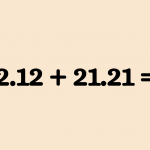Quiz: Are You Genetically Predisposed To Having Twins?
Quiz: Am I Genetically Predisposed To Having Twins? Many people are curious about their chances of having twins. While some factors like family history, age, and race can increase your chances of having twins, the primary factor is your genetics. There are two types of twins: fraternal and identical. Fraternal twins are the result of two separate eggs being fertilized by two different sperm. Identical twins are the result of one egg being fertilized by one sperm and then splitting into two embryos. Your chances of having twins are determined by the type of twin you are genetically predisposed to having. If your family has a history of fraternal twins, then your chances of having fraternal twins are higher than if there is no family history. Similarly, if your family has a history of identical twins, then your chances of having identical twins are higher. Your age can also play a role in your chances of having twins. Women over the age of 35 are more likely to have fraternal twins, while women under the age of 35 are more likely to have identical twins. Your race can also influence your chances of having twins. African Americans have the highest rate of twin births, followed by Hispanics and Caucasians. Ultimately, the primary factor in your chances of having twins is your genetics. If you have a family history of twins, your chances are higher than if you don't. Your age and race can also play a role, but the primary factor is your genetics.





